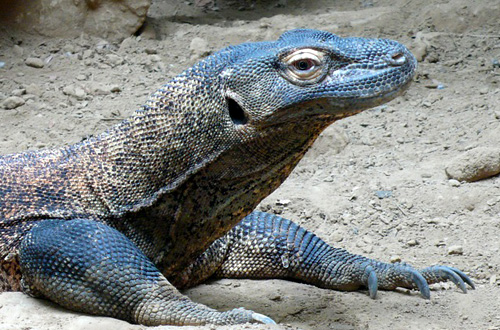Jakarta (Greeners) – Illegal wildlife trading watchdog, Scorpion Wildlife Trade Monitoring Group, helped the police to revealed and captured two illegal wildlife trade syndicate which operated through the internet and involving international network, on last November.
Raynaldo G. Sembiring, deputy director of program development for Indonesian Center for Environmental Law (ICEL), said that illegal wildlife trade is a crime which can only be solved through strategic approach as it is an organized crime. It means though the crime is visible to see but it will not be easy to indict as there are many players, even in government level.
Raynaldo said that mode of operation of illegal wildlife trades usually changes. Currently, the police is giving special attention in monitoring and enforcing the law on illegal wildlife trading through the internet. However, Raynaldo said that sanctions were still weak making it hard to tackle the crime. The sanction is stipulated based on the 1990 Law on Natural Conservation and its Ecosystem.
“It is important to revise the law which will become the reference for investigators to reveal the iceberg phenomenon behind the syndicate,” he said to Greeners, in Jakarta, on Tuesday (12/10).
Furthermore, he said that most of those captured were only small culprits.
It is expected that by revising the law would be able to capture major players in illegal wildlife trading, especially traders who explicitly sell wildlife in traditional markets or internet.
Raynaldo said illegal wildife trading has already reached international level.
He cited case of yellow-crested cockatoo smuggling sent to various countries through sea harbors which meant that it was carried out by organized crime organization.
Indra Exploitasia Semiawan, head of genetic resources sub directorate of Natural Conservation and Ecosystem at the Ministry of Environment and Forestry, said that Indonesia is home to four out of 100 endangered species in the world.
In 2013, Transnational Organized Crime Threat Assessment predicted illegal wildlife trading reached US$ 2.5 billion in Asia Pacific region.
Meanwhile, illegal wildlife in Indonesia reached US$ 1billion per year.
Indonesia has become one of supplier country in Asia, legal and illegal. In addition, Indonesia also a crucial transit point for illegal wildlife trafficking from Africa to East Asia, such as ivory trade.
“Illegal wildlife trading is obviously threaten Indonesia’s biodiversity,” said Indra.
Meanwhile, Rasio Ridho Sani, director general for environmental law enforcement, said the ministry has been enforcing the law on protected species especially endangered ones.
However, he admitted that tackling illegal wildlife trade has not been maximum. “We are still trying to stop these illegal practices. We have been enforcing the law in our work areas, especially in regional natural resources agencies (BKSDA),” he said.
Report by Danny Kosasih



















































